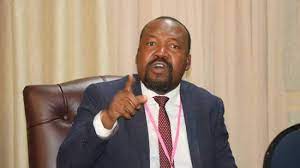Health and Child Care Portfolio Committee Chairperson Daniel Molokele says there is a need for policy changes and legal reforms to empower administrators of public hospitals to make crucial daily decisions, aiming to enhance efficiency within these institutions.
The Parliamentary Committee on Health and Child Care recently conducted tours to major hospitals, revealing concerns about service delivery challenges.
Speaking during This Morning on Asakhe, Molokele highlighted that recurring issues identified during this week’s tours mirrored those from last year‘s inspections of major referral hospitals in Bulawayo and Harare, indicating a lack of progress.
“Last year before the 9th Parliament adjourned, the last activity that the Portfolio Committee for Health and Child Care did was to do a similar tour responding to a petition, unfortunately, Parliament adjourned that week so that process was null and void so we had to start again the same process this week, but I was privileged to lead the delegation, I was not yet the chairperson by the then chairperson Dr Ruth Labode allowed me to sort of lead the delegation that did the same process last year.”
“I had this advantage now that I am the chairperson that over a year later since the previous visits to the hospitals, the answers that we were getting at Parirenyatwa were almost the same with last year and the only concern was that there is nothing over the year latter that have been done to resolve them,” he said.
Despite assurance from hospital management regarding efforts to address the challenges, Molokele said hospitals still lack decision-making authority on critical matters.
“Both Parirenyatwa and Mpilo are saying, we do not have the authority to make decisions on some of these issues when it comes to budgets, appointments, tenders, we have to submit everything to the ministry and then the Ministry takes its time, yet the Ministry also says we have to submit everything to treasury and it takes its time, so the whole process is too bureaucratic.”
He added, “There is a need for more independence, more autonomy so that some of these day-to-day issues like security do not need to wait for central government and thus the direction we are going to, even the diagnostic machines take years because they have to submit invoices, requisition for documents in the Ministry of Health which they should do, they should actually be in charge of such things and respond immediately so that patients are not disadvantaged.”
Molokele said the Parliamentary Committee on Health and Child Care agreed with the hospital administrators that there is a need for policy change and legal reform so that they become more able to make decisions, especially on a short-term basis.
Furthermore, Molokele proposed benchmarking visits to countries like South Africa, where public hospitals have greater autonomy and even operate viable private sections to generate income.
“Thus, an existing market which they can tap to if they can provide, so it’s a balancing act to say that we can have a dual system where there is both at Mpilo there is private wards and also public wards and private wards are used to subsidies the public wards and things like security will now be administered by the Mpilo itself direct and that is the direction we need to go to,” he said.

